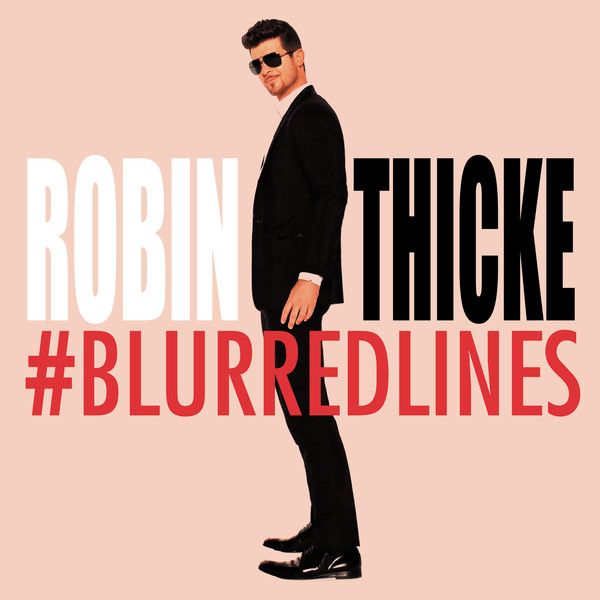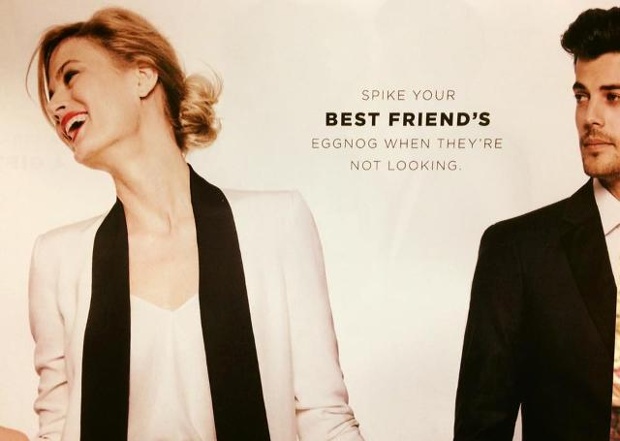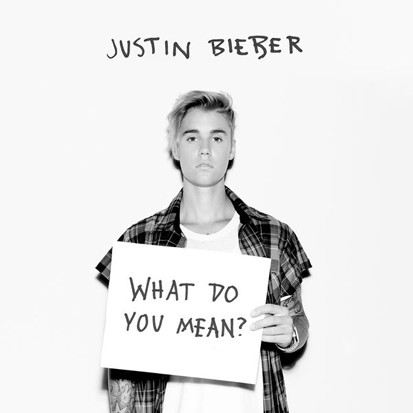 Robin Thicke’s song, “Blurred Lines,” achieved international recognition in 2013. But the lyrics were also heavily criticized as promoting sexual violence by celebrating “blurred lines” around sexual consent. Indeed, the song and video prompted an online photo essay in which women and men are depicted holding up signs with words they heard from their own rapists—some of which were almost direct quotes from Thicke’s song. The song received a great deal of negative and positive press all at the same time. The media attention seemed to prove the media adage that any coverage is good coverage if Thicke’s continued celebrity is any measure.
Robin Thicke’s song, “Blurred Lines,” achieved international recognition in 2013. But the lyrics were also heavily criticized as promoting sexual violence by celebrating “blurred lines” around sexual consent. Indeed, the song and video prompted an online photo essay in which women and men are depicted holding up signs with words they heard from their own rapists—some of which were almost direct quotes from Thicke’s song. The song received a great deal of negative and positive press all at the same time. The media attention seemed to prove the media adage that any coverage is good coverage if Thicke’s continued celebrity is any measure.
It’s not a new argument to suggest that many elements of what feminist scholars refer to as “rape culture” are embedded in seemingly pleasurable elements of pop culture, like songs, movies, television shows etc. And Robin Thicke’s song served as an example to many of how we not only tolerate rape culture—but how we celebrate it and render it “sexy.” Recently, Rebecca Traister discussed just how much rape culture even informs what we think of as “good sex” in her piece “The Game is Rigged: Why Consensual Sex Can Still be Bad.” In it, Traister challenges the notion that all consensual sex is good and shows just how messy the debate about what qualifies as “consensual” really is. In many ways, our national discussion around sexual assault and consent is taking up themes raised by feminists in the 1980s about what actually qualifies as consent in a society in which violence against women is considered sexy.
Compared with “Blurred Lines,” Justin Bieber’s newly released hit single, “What Do You Mean?” has been subject to less critique. The notion that women do not actually know what they want and that they are notoriously bad and communicating their desires (sexual and otherwise) is pervasive. In the song, Bieber asks the woman with whom he’s interacting, “What do you mean? / Ohh ohh ohh/ When you nod your head yes / But you wanna say no / What do you mean?” The lack of clear consent isn’t just present in the song; it is what provides the sexual tension. It’s part of what is intended to make the song “sexy.”
Sexualizing women’s sexual indecision is an important part of the way rape culture works. It is one way that conversations about consent often over-simplify a process that is and should be much more complex. The song itself presents Bieber nagging the woman to whom he’s singing to make a decision about their relationship. But there are many elements suggesting that the decision she’s being asked to make is more immediate as well—not only about the larger relationship, but about a sexual interaction in the near future. Throughout the song, the click of a stopwatch can be heard as a beat against which Bieber presses the woman to make a decision while berating her for the mixed signals she has been sending him.

Bieber is presented as the “good guy” throughout the song by attempting to really decipher what the woman actually means. Indeed, this is another element of rape culture: the way in which we are encouraged to see average, everyday guys as “not-rapists,” because rapists are the bad guys who attack women from bushes (at worst) or simply get them drunk at a party (at best).* The controversy over the ad in Bloomingdale’s recent 2015 holiday catalog urging readers to “spike your best friend’s eggnog when they’re not looking” shows that this kind of rape culture is also casually promoted in popular culture as well. But, the larger discourse that Bieber’s song plays a role in promoting is the notion that women do not know what they mean or want. Bieber plays the role of someone simultaneously pressuring her for sexual advance (“Said we’re running out of time”), helping her work through her feelings (“What do you mean?”), and demanding results (“Better make up your mind”). And, like the Bloomingdale’s advertisement, this is not sexy.
Indeed, the music video (above) takes this a step further. Bieber is shown at the beginning paying John Leguizamo on a street corner and asking him to make sure “she doesn’t get hurt.” We later find out that John was paid to orchestrate a kidnapping of both Justin and the woman whom he meets in a hotel room. Both are taken by men in masks, driven to a warehouse in the trunk of a car, and tied up. Justin is able to free them, but they are still in a room with their kidnappers. They back up to a door that leads outside the building and see that they are one of the top floors. Justin turns to the woman, holds out his hand and asks, “Do you trust me?” She takes his hand and they both jump out of the building. They jump and fall to the ground, landing on a parachute pillow only to discover that the whole thing was a trick. The kidnapping was actually orchestrated ruse to bring her to a party that they entered by leaping from the building away from the men who’d taken them. The men in masks all reveal themselves to be smiling beneath. She smiles at Justin, recognizing that it was all a trick, grabs his face, kisses him and they dance the night away in the underground club.
Even though the song is about feeling like a woman really can’t make up her mind about Justin, their relationship, and sexual intimacy, the woman in the video is not depicted this way at all. She appears sexually interested in Justin from the moment the two meet in the video and not bothered by his questions and demands at all. Though it is worth mentioning that he is terrorizing her in the name of romance, indeed the terror itself is a sign of how much he loves her—also a part of rape culture. This visual display alongside the lyrics works in ways that obscure the content of the lyrics, content that works against much of what we are shown visually.
 Part of what makes rape culture so insidious is that violence against women is rendered pleasurable and even desirable. Thicke and Bieber’s songs are catchy, fun, and beg to be danced to. The women in Thicke’s video also appear to be having fun strutting around nude while the men sing. The woman in Bieber’s video is being kidnapped and terrified for sport, sure, but it’s because he wants to show his love for her. She’s shown realizing and appreciating this at the conclusion of the video. Rape culture hides the ways that sexual violence is enacted upon women’s bodies every day. It obscures the ways that men work to minimize women’s control over their own bodies. It conceals the ways that sexual violence stems not just from dangerous, deviant others, but the normal everydayness of heterosexual interactions. And all of this works to make sexualized power arrangements more challenging to identify as problematic, which is precisely what makes confronting rape culture so challenging.
Part of what makes rape culture so insidious is that violence against women is rendered pleasurable and even desirable. Thicke and Bieber’s songs are catchy, fun, and beg to be danced to. The women in Thicke’s video also appear to be having fun strutting around nude while the men sing. The woman in Bieber’s video is being kidnapped and terrified for sport, sure, but it’s because he wants to show his love for her. She’s shown realizing and appreciating this at the conclusion of the video. Rape culture hides the ways that sexual violence is enacted upon women’s bodies every day. It obscures the ways that men work to minimize women’s control over their own bodies. It conceals the ways that sexual violence stems not just from dangerous, deviant others, but the normal everydayness of heterosexual interactions. And all of this works to make sexualized power arrangements more challenging to identify as problematic, which is precisely what makes confronting rape culture so challenging.
___________________________
*See C.J. Pascoe and Jocelyn Hollander’s forthcoming work in Gender & Society—“Good Guys Don’t Rape: Gender, Domination, and Mobilizing Rape”—for more on what this discourse looks like and how it works.
